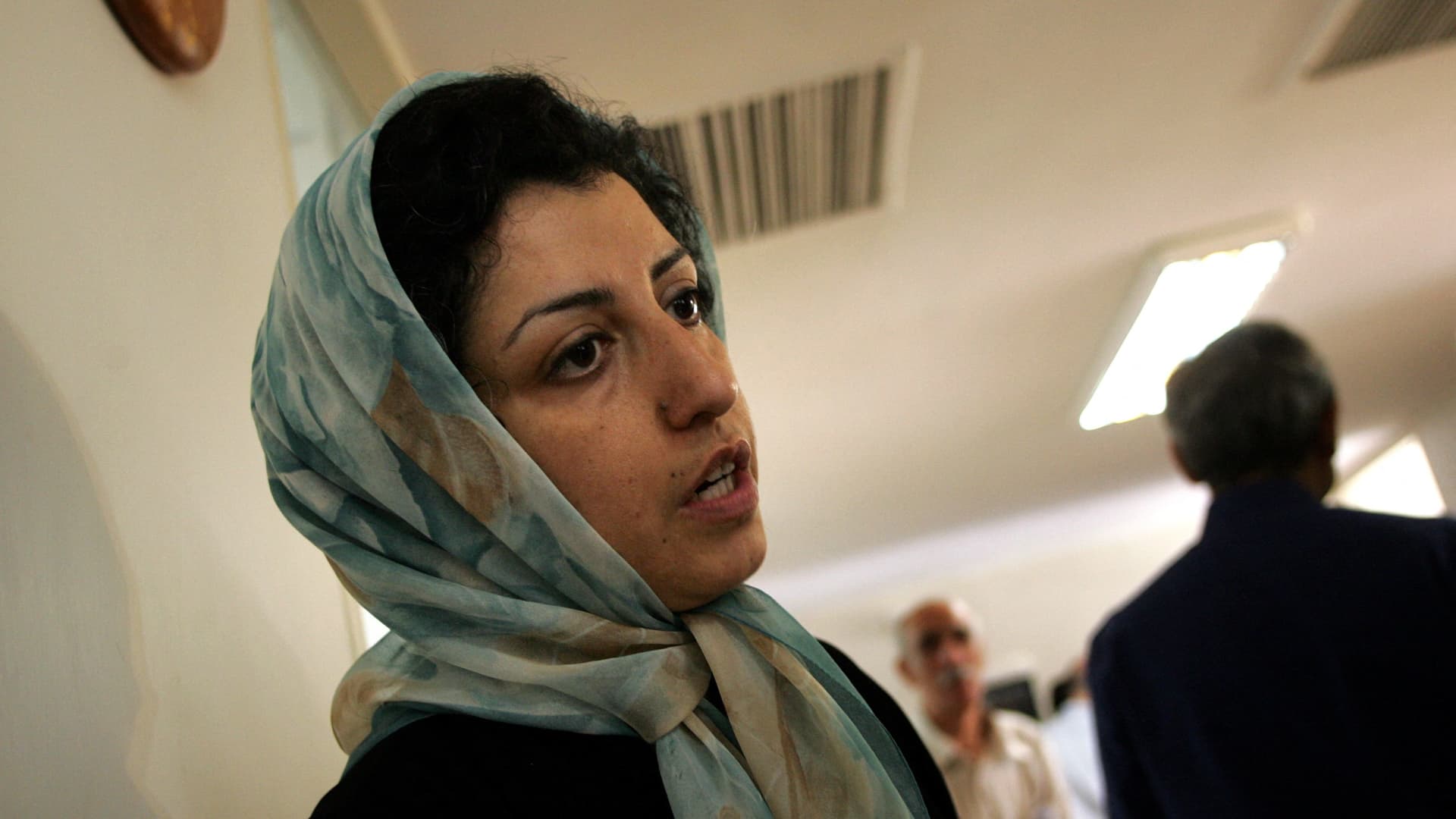The Nobel Peace Prize was awarded on Friday to Iranian human rights activist Narges Mohammadi.
Mohammadi received the prize for “her fight against the oppression of women in Iran and her fight to promote human rights and freedom for all,” the awards committee said. Mohammadi is currently in prison.
“Her brave struggle has come at tremendous personal cost,” the committee spokesperson said, adding that Mohammadi has been arrested 13 times, convicted five times, and sentenced to a total of 31 years in jail and 154 lashes.
The award will further encourage Mohammadi to continue her work, her husband Taghi Rahmani told Reuters.
“This Nobel Prize will embolden Narges’ fight for human rights, but more importantly, this is in fact a prize for the woman, life and freedom movement,” Rahmani said Friday in an interview with the news agency.
The announcement follows much speculation over who would win this year’s prize, with the likes of Ukrainian President Volodymyr Zelenskyy and Russian dissident Alexei Navalny both touted as frontrunners for the illustrious award.
Previous winners of the Nobel Peace Prize include the European Union for “the advancement of peace and reconciliation, democracy and human rights in Europe,” former U.S. President Barack Obama, “for his extraordinary efforts to strengthen international diplomacy,” and Nelson Mandela and Frederik Willem de Klerk “for their work for the peaceful termination of the apartheid regime, and for laying the foundations for a new democratic South Africa.”
The Nobel prizes originated in 1895 when inventor, entrepreneur and businessman Alfred Nobel lay out the foundation for the awards in his will. The first Nobel prizes were given out in 1901. They recognize achievements in physics, chemistry, medicine, literature, and for work in peace.





